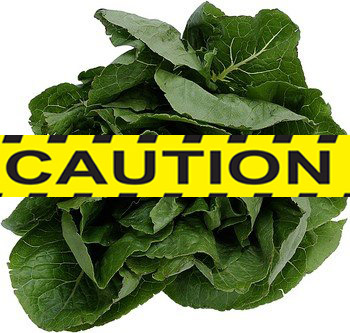In order to produce such large quantities at affordable
rates, large food producers have to find ways to cut corners, increase
productivity, and drive down costs of production. While this makes the price
tag go down at the supermarket, it ends up also increasing the cost on your
health. Pesticides, antibiotics, growth hormones, genetic modifications, poor
conditions, poor top soil, poor animal feed, and dumping of waist/ toxins are
just some of the tactics used by these companies to lower costs and increase
production. All of this ends up affecting the food that you eat, and in turn, your
health.
If you want to learn more about these issues, please do
yourself a favor and go rent Food Inc.,
a documentary on just how bad the food industry had become when it comes to its
concern for your wellbeing. There is more info in there than I can cover in
this post, but just know that it takes on just about every angle of how this
system of food production is hurting us.
What I want to focus on, rather, is what you can do to
remove yourself from the cycle. If you are looking to really change the way you
look and feel, food quality is a great place to start. The following are the
best principles to follow to ensure the highest quality possible:
1) Buy from your local farmers. Go to the farmer’s
market, talk with the people growing your food, and find out what they are doing
to ensure its quality. If this is not possible, at least find out from your
local grocer when new shipments come in so that you can buy fresh and still
look for local products.
2) Buy often. Once you find a good place to
purchase your food, try to shop for only 2-3 days at a time. If you need
something to last longer than this, keep it in the freezer.
3) Buy organic. This is where talking with your local
farmer can make a big difference, because you can really get to the bottom of
what they mean when they say organic. Large companies do not always have as
strict of procedures to ensure “organic” status, so talk with your food
provider about how they ensure that no toxins are used in producing your food.
4) Wash your plants. Before you prepare your meals,
be sure to wash your plants. This becomes infinitely more important if you were
unable to buy organic, but even if you were, it’s always a good idea.
5) Don’t forget to look at what you eat eats. Grass
fed/wild animal products will always be superior.
6) Look at the label. If you want the highest
quality foods, they probably won’t have a label, but if you are unsure, take a
look at the back and see what the ingredients are. If there are more than 3
ingredients, and any of them are unknown or hard to pronounce, you may want to
reconsider the purchase.
These are just a few ways to ensure that you are eating the
highest quality food possible, and keeping yourself from becoming a
statistic. While the amount of food we
consume is always important, we must respect the quality of our food if we hope
to look and feel our best. Losing fat (not just weight), optimizing energy,
preventing disease, and even improving and stabilizing mood can all be linked
back to the quality of our food. Our bodies were not meant to consume
chemicals, toxins, and decayed food, so it is up to us to search out the best
food options if we are to live long, fulfilling lives.
If you would like more information on food quality, please
check out Food Inc.:
Also, if you would like to find a farmer’s market near you,
here is a list of all those markets in Santa Clara County:


No comments:
Post a Comment